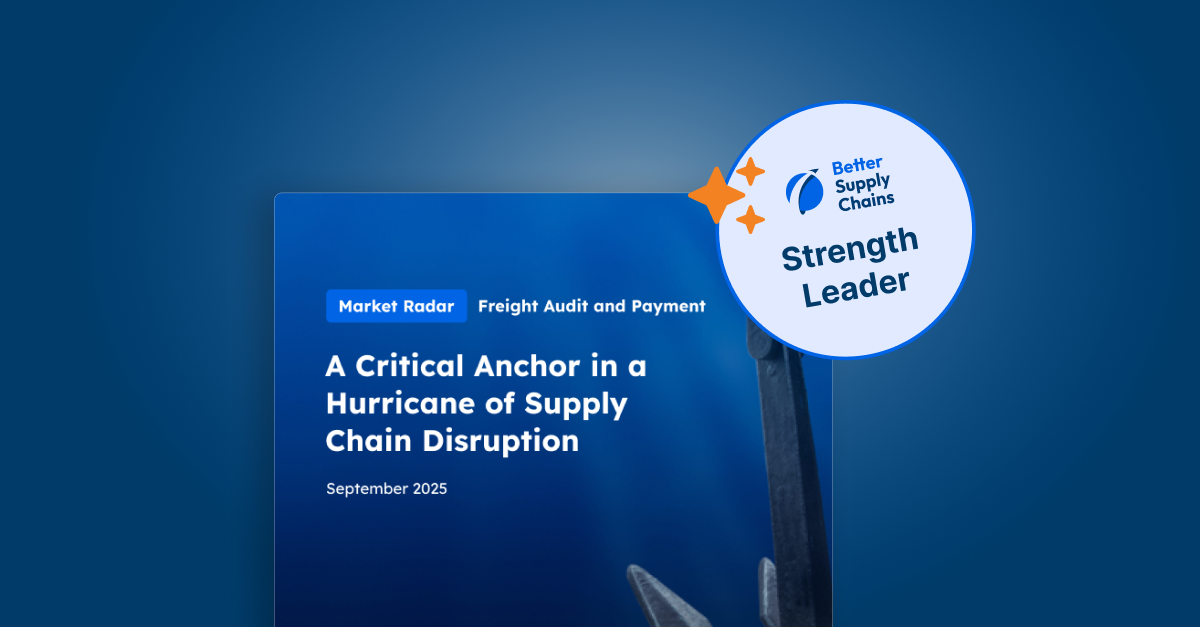The Five Rules of an Effective Freight Audit

For shippers, freight auditing is a vital component of the transportation process. Without this step, oversights in freight and invoicing can snowball into larger issues that can negatively impact revenue or a company’s reputation. Freight audits allow shippers to address small inconsistencies and errors before they become major issues that require more time and more resources to resolve.
Despite the necessity of freight auditing, it is a complex and nuanced process that requires an experienced accounting team and a significant amount of time. Unfortunately, many companies lack adequate staffing and resources to effectively and consistently conduct freight audits. This blog explores how technology is helping companies overcome the challenges of freight auditing and delivering exceptional value through data analytics and insight.
What Is a Freight Audit?
A freight audit is a process that shippers carry out to cross-check freight invoices and shipping documents for errors and discrepancies. This accounting process generally happens after the delivery to see whether it was delivered on time, whether shipping was charged according to agreed rates, and whether the terms and conditions of the contract were followed. The audit also identifies when a claim should be made for damages or losses.
Freight audits are especially important in the midst of ongoing labor shortages, which can leave shippers at the mercy of understaffed logistics hubs. In fact, a survey by Instawork showed that 73 percent of warehouse operators are having a hard time finding staff. The labor shortage creates numerous challenges to the supply chain. Understaffed warehouses and distribution centers simply can’t operate at full capacity, creating delays in packing and shipping that result in inventory shortages for manufacturers and retailers alike.
With so much on the line, shippers need strategies to ensure effective freight audits that help them identify discrepancies. In addition, an effective audit process can also provide important data that contributes to business insights and decisions.
The Five Rules of an Effective Freight Audit
A freight audit can help streamline operations and provide insights into solving problems, including worker shortages. These five rules are key to a successful freight audit:
1. Reduce Manual Processes
Manual auditing processes are outdated and have a high risk of human error in data entry. Additionally, they require substantial labor resources to transcribe paper documents into accounting systems and manage physical files. Electronic audit processes eliminate these issues and deliver more accurate audits, faster invoice receipts, and fewer exceptions.
2. Automate Accounting
Automating accounting processes creates efficiencies that can be felt across the organization. This is great news in light of labor shortages that leave less time for manual accounting and freight audit processes. Automation also ensures better accuracy and can identify discrepancies fast, allowing accounting teams to focus more time on resolving issues and less time trying to find them.
3. Invest in Detailed Data
Another benefit of freight audits is that collected data can be analyzed to provide valuable insights and inform business decisions. Detailed freight audits provide important data that allows businesses to directly compare carriers and services to identify weak links and opportunities for improvement. Freight audit software and freight audit companies can further help shippers with data analytics to drive business intelligence and optimization.
4. Prioritize Invoice Terms
Different carrier invoices often specify unique terms that the shipper needs to follow. It can be challenging to keep up with these terms in the face of stacks of invoices, but failing to confirm terms before issuing payment can translate to late payments, over-payments, or other issues. Advanced auditing software helps solve this issue with customizable term criteria to ensure individual carrier terms are taken into consideration on every invoice.
5. Gain Visibility Through a Single Source
Accurate and timely freight data improves overall visibility, particularly when it is integrated with a transportation management system that collects and standardizes data from parties across the supply chain. Freight audit data can provide a more detailed and thorough understanding of transportation processes throughout the lifecycle to better optimize networks over time.
For Effective Freight Audit and Payment, Shippers Turn to Intelligent Audit
Freight auditing is a necessary and extremely beneficial component of transportation and logistics. This accounting process can present challenges, but the right technology helps shippers streamline and optimize audit functions.
Intelligent Audit’s freight audit software makes it simple to optimize accounting processes. It includes more than 150 data points in its audit capabilities, provides analytics, and uses cutting-edge machine learning to catch problems in real-time and provide visibility. Get started with Intelligent Audit today to automate your freight audit process and gain access to critical data insights.



